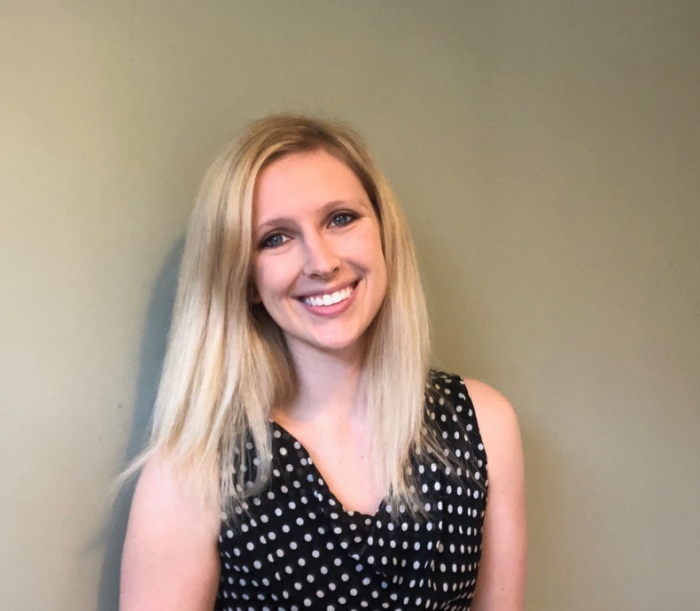Nobody likes to be pigeon-holed – it stunts professional growth and limits your options. And the same can be said of employers. Just because a company dominates in a particular field or industry doesn’t mean they are only recruiting one type of graduate from one distinct discipline. In fact, some of the most successful and agile workplaces are committed to recruiting students from a variety of backgrounds to maximise creativity and diversify thought. Here are just four of them.
Chartered Accountants Ireland
‘We embrace diversity and creativity in the workplace – we want to see difference around the table’
“As a body we are keen to attract the brightest and the best but from all backgrounds which isn’t often known or appreciated and we find the employers we work with really welcome and endorse a mixed skillset and really welcome students coming from all degree discipline.
“As a Law graduate, to me, chartered accountancy was boring – it was going to be number-crunching accounting and it was a far cry from what I saw myself doing. I have to say my mind was completely blown. I often get asked will an employer not favour someone from a finance/accounting background and the answer is no. They don’t want to have everyone around their table with the exact same thought process and methodology. They really embrace diversity and creativity in the workplace and that really helps them excel, forcing them to innovate and disrupt the norm which is necessary in the modern workplace. Communication skills are key, which people mightn’t fully appreciate. The ability to make good decisions – to weigh up qualitative and quantitative data, to use critical thinking, to be a strategist and to influence others. So that emotional intelligence is absolutely core to becoming a good chartered accountant because ultimately that is a business leadership passport.”
– Sinead Fox-Hamilton, Chartered Accountants Ireland
PwC
‘It’s not just accountancy – there is a whole range of varied roles across the board’
“There’s lots of areas in PwC you can join as graduates – we don’t require a specific degree. As a Psychology graduate, it was never somewhere I’d considered because I just thought it was very corporate; that it’s all accountancy-based and it’s very professional and it’s maybe not for me. But actually, what I’ve found is that it totally is for me and it’s the right place for me to be. We are an accountancy firm, but there’s so much more than that – so we recruit graduates into consultancy, tax, deals, working with different clients, mergers, audit and of course accountancy so there’s a whole range of things you can do at PwC varied across the whole board.
Consultancy for example is very much working with clients and problem-solving and finding solutions for those clients. Someone might come to us looking to do a new business merger or something like that so our consultancy team would look into that for them and be their advisors.”
– Sarah Delaney, PwC
NatWest Banking Group
‘I’ve been here 14 years and probably had about 6 different careers.’
“The reason I’ve stayed so long in the bank is that, whilst I’ve been here 14 years, I’ve probably had about 6 different careers in that time. I have done a variation of different roles including business-facing HR consultant type jobs, business partnering jobs…Right now, I’m the HR business partner for three different areas and they are group business areas. I look after three business areas – financial crime and control, fraud prevention and shared services. These are the back-office areas – basically the bits of the bank that keeps everything ticking along, but you wouldn’t necessarily see those parts of the bank because they’re not there on the high street in branches and such. My role looks after about 8000 people and they are spread across the globe – predominantly UK, Poland and India but also I have a scattering of people in the States, Singapore and Japan and other ones and twos over the globe as well. So, I have very much gone from being an Island of Ireland-focused role back when I joined the bank 14 years ago to a truly global role now.”
– Sandra Wright, NatWest Group
Belfast City Council
‘In the council, you don’t just work on one thing, you have to flexible and respond to different demands.’
“We have a community plan which is focal to everything that we do and it’s called the Belfast Agenda and it focuses on Belfast becoming a safe, fair and inclusive city where everyone benefits from the success of the city. We’re looking for analytical skills, problem-solving skills, decision-making skills, communication skills – especially if you’re going out into the communities and engaging with the citizens of Belfast. As well as good written and oral communication skills, because you’d be working with a range of different audiences – so maybe colleagues, managers and members of the public. Researching and benchmarking skills are really important to us, work planning, project management and partnership working. So, whilst you’re at university, try to get as much experience as you can around that. Demonstrate that you’re self-motivated and you’re a good team player, and that you’re flexible in your approach to work. In the council you don’t just get working in one thing, there’s different demands all the time from different people and you have to be flexible in managing that demand, as well as working to tight deadlines.”
– Alison Long, Belfast City Council
To access more inspiring advice from business leaders, catch up on our Employer Panel series by re-watching our past events here:
https://www.qub.ac.uk/directorates/sgc/careers/careers-events/pastevents/










